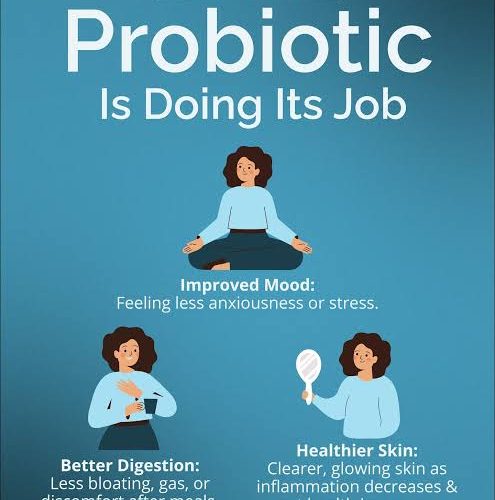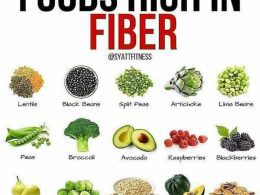Introduction
Probiotics have become a staple in wellness routines worldwide. From improving digestion to boosting immunity, these beneficial bacteria promise a range of health benefits. But after adding probiotics to your diet or supplement plan, how can you tell if they’re actually doing their job? Understanding the signs probiotics are working helps you track progress and optimize your gut health journey.
In this article, we’ll explore what probiotics do, the positive indicators they’re working, how long it takes to see results, and when to consider switching products or consulting a specialist.
What Are Probiotics and How Do They Work?
Probiotics are live microorganisms mainly bacteria and yeasts that support a healthy gut microbiome. Common strains include Lactobacillus, Bifidobacterium, and Saccharomyces boulardii. When consumed in adequate amounts, probiotics help restore balance in your gut flora, which can be disrupted by factors like antibiotics, poor diet, or stress.
By repopulating your gut with “good bacteria,” probiotics can:
- Improve digestion and nutrient absorption
- Reduce bloating, gas, and diarrhea
- Strengthen immune function
- Support mental health through the gut-brain axis
However, probiotics are not a quick fix. The timeline and visible effects vary depending on your health status, diet, and the specific strains used.
Key Signs Probiotics Are Working
1. Improved Digestion
One of the earliest and clearest signs probiotics are working is better digestion. If you previously struggled with irregular bowel movements, constipation, or occasional diarrhea, you may notice more regularity within days to weeks. A healthier gut microbiome can help break down food more effectively, easing digestive discomfort.
2. Less Bloating and Gas
Many people start probiotics to address bloating and excessive gas. While initial use may sometimes lead to temporary bloating as your gut adjusts, within a week or two this should subside. When probiotics are working, you’ll likely experience less bloating after meals and reduced abdominal discomfort.
3. More Consistent Bowel Movements
Probiotics help regulate bowel habits by balancing intestinal bacteria and supporting proper peristalsis (the movement of food through the intestines). Regular, formed stools without urgency or pain often indicate that your probiotic regimen is effective.
4. Better Immunity
Since about 70% of your immune system resides in your gut, an improvement in your immune resilience can also signal that probiotics are working. Fewer colds, faster recovery times, and reduced seasonal allergies are all signs of a stronger immune system.
5. Enhanced Mood and Mental Clarity
The gut and brain are closely linked. Research shows that certain probiotic strains can positively influence mood, reduce anxiety, and improve focus. If you notice greater emotional stability, less stress, or sharper mental clarity, your probiotics may be supporting your gut-brain axis.
6. Clearer Skin
Skin health is another indirect measure of gut balance. Conditions like acne, eczema, and rosacea can flare up when gut bacteria are imbalanced. Probiotics that restore gut health may lead to clearer, calmer skin over time.
7. Reduction in Food Sensitivities
When the gut barrier is strengthened, it becomes less permeable, reducing inflammation and sensitivities. Some people notice fewer adverse reactions to certain foods after consistently taking probiotics.
How Long Does It Take to See Results?
The timeframe for visible changes depends on the individual, the probiotic strain, and the reason for taking them. For most people:
- Digestive improvements can appear in 1–2 weeks.
- Immune benefits may show within a few months of consistent use.
- Skin or mood changes may take 4–8 weeks.
Consistency is key. Taking probiotics daily at the recommended dose maximizes their effectiveness. Pairing probiotics with a high-fiber, prebiotic-rich diet also helps nourish these beneficial bacteria.
Temporary Symptoms Don’t Always Mean They’re Not Working
It’s common to experience mild digestive changes, such as gas or slight bloating, during the first few days of probiotic use. This doesn’t necessarily mean the product isn’t effective—in fact, it may be a sign your gut is adjusting to the new bacteria. These effects typically resolve quickly as your microbiome stabilizes.
When to Reassess Your Probiotic
Not all probiotics are created equal. If after 4–6 weeks you notice no improvement—or your symptoms worsen—it might be time to:
- Check the probiotic’s CFU count and strain diversity.
- Switch to a different strain more suited to your needs.
- Review your diet and lifestyle habits that might counteract probiotic benefits.
For personalized guidance, consult a digestive health specialist. A professional can recommend specific strains based on your unique gut profile.
Tips to Maximize Probiotic Effectiveness
- Take them consistently at the same time each day.
- Store them properly some need refrigeration to maintain potency.
- Pair with prebiotics, such as bananas, onions, or asparagus, to feed the good bacteria.
- Maintain a balanced diet low in processed foods and high in whole, plant-based options.
- Stay hydrated to support healthy digestion.
Why Expert Guidance Matters
Probiotics can be powerful allies in gut health, but individual results vary widely. For people with chronic digestive conditions, autoimmune issues, or complex symptoms, professional input ensures you’re using the right strains and dosages for your situation.
If you’re unsure which probiotic supplement to choose or want to evaluate your digestive health, it’s wise to consult a clinic that specializes in gastrointestinal wellness such as liveranddigestivecare.com. They can offer tailored advice and testing to help you achieve optimal results.
Final Thoughts
Recognizing the role of probiotics in gut health is crucial for tracking your gut wellness journey. Improvements in digestion, immunity, mood, and skin often indicate that your microbiome is becoming more balanced. However, results take time, and not all probiotics work the same way for everyone.
By being consistent, patient, and informed, you can maximize the benefits of probiotics and enjoy long-term improvements in overall health. And if you’re unsure about your progress, don’t hesitate to seek professional help for a personalized plan.












